Show aired March 5
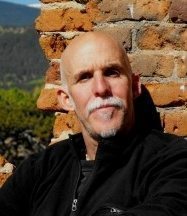
New York Times bestselling author Steve Jackson
In the course of working on a potential book in Oregon about a man accused of murdering his girlfriend and mother of his child by pushing her off a cliff in 2009, I suddenly became a focal point of a January hearing over a defense motion to dismiss the case. Pre-trial efforts to dismiss a case are not unusual. However, the defense attorney, Mike Arnold, partly based his witness questioning during testimony on the (nonsensical) theory that the only reason the prosecutor took the case to the grand jury, got an indictment for murder, and that the defendant was arrested and now faces murder charges is because the “nationally famous New York Time bestselling author Steve Jackson” worked the case in 2012 as an investigative journalist/author. There were other aspects to the motion to dismiss, including the disappearance or destruction of some of the state’s evidence, as well as prosecutorial delays in indicting the defendant, Steven P. Wagner Nichols.
 Last week, the judge denied the defense motion and all of Arnold’s contentions, and hardly noted my “role” in talking to the prosecutor in the case during my attempt to gather information about the case’s progress in 2014. In other words, all of those legalities that were required to land Nichols in the predicament that he finds himself–a law enforcement investigation that produced enough evidence for a grand jury to indict him–after Arnold’s spirited attempt to get the case thrown out of court, were upheld by the judge and the case will go to trial.
Last week, the judge denied the defense motion and all of Arnold’s contentions, and hardly noted my “role” in talking to the prosecutor in the case during my attempt to gather information about the case’s progress in 2014. In other words, all of those legalities that were required to land Nichols in the predicament that he finds himself–a law enforcement investigation that produced enough evidence for a grand jury to indict him–after Arnold’s spirited attempt to get the case thrown out of court, were upheld by the judge and the case will go to trial.
However, back in January after questioning prosecution witnesses (including the so-unusual-as-I’ve-never-seen-anything-like-it calling the prosecutor to the stand) about my attempts to contact them, Arnold made a show in court of serving me and private investigator Tom McCallum, who assisted me beginning in December 2011 in gathering information about the case, with subpoenas. He hoped to call me to the stand for the motion to dismiss, but I invoked the Oregon Shield Law
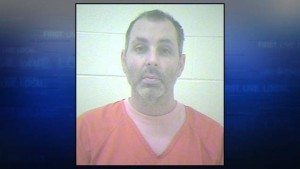
Steve Nichols booking photograph after his arrest in February 2015
which protects journalists from having to testify, reveal sources or give up their work documents, and Arnold dropped that subpoena. However, he’s still hoping to call me to the stand to discuss my investigation but I am working with an attorney to quash those subpoenas as well, though I do thank him for the “nationally famous New York Times bestseller” reference.
After the hearing (and before the judge’s decision to toss the motion to dismiss the case), I was interviewed twice in the hallways of the courthouse by Peter Van Sant, a correspondent for the CBS news magazine 48 Hours, as to my reaction to Arnold’s actions and whether I believe the district attorney’s office, as well as law enforcement investigators, were influenced by my presence. I basically talked about the role of investigative journalism, as well as interview and research techniques we all–including 48 Hours and other such news programs that pride themselves on being at the cutting edge of stories–employ.
A little background
The defendant, Nichols, stands accused of pushing his girlfriend, Rhonda Casto, off a cliff along a hiking trail in the Columbia River Gorge near Hood River in March 2009. They’d had a baby girl a few months earlier though Nichols had little to do with the child at her birth or in the months that followed; he got custody, however, following Casto’s death. The couple had also taken out a large life insurance policy shortly before Casto’s death, which Nichols had increased over the telephone to the agent to more than a million dollars (even though Casto had very little income and the policy was apparently issued in violation of the company’s normal practices. The insurance company refused to pay Nichols based on him being a “suspect” in her death; rather than take the stand, Nichols agreed that the money would be placed in a trust for their child). I began looking into the case in late 2011, including court and law enforcement

Rhonda Casto shortly after the birth of her daughter
documents of domestic violence and a sexual assault against a minor against Nichols. My investigation included the usual practice of contacting law enforcement agencies to find out what was going on with a case that had apparently stalled. Nichols was indicted in April 2014, at which time he was working in China teaching English as a second language; he was arrested in February 2015 at the San Francisco airport when he was tricked into returning to the United States regarding questions about his daughter’s visa.
His trial is set for May-June 2016 although it could be delayed by a number of pre-trial battles in the works, including whether “prior bad acts” alleged to have been committed by Nichols in the past will be allowed into testimony at the murder trial. In February, the judge ruled that four of ten alleged prior bad acts that the prosecutors requested could be entered into evidence at the trial, including that Nichols, then 34, was having a sexual affair with Casto’s under-aged 16-year-old-sister at the time of Casto’s death and the information about the million dollar life insurance policy, both of which might be construed by a jury as motive. It’s my understanding that the Oregon Department of Justice is considering whether to appeal to have the other “prior bad acts” reinstated, including an allegation brought out in a divorce case in which Nichols’ first wife said he tried to throw her off a balcony of their apartment building in Shanghai, China; an act allegedly witnessed by their Chinese nanny. The ODOJ is appealing the judge’s ruling that certain statements Nichols made to law enforcement in San Mateo after his arrest in this case will not be allowed into testimony. During the interrogation, Nichols made a rather nebulous statement that Arnold successfully argued before the judge that his client had invoked his right to have an attorney present before answering any more questions. That will all be decided by the Oregon Supreme Court and could delay the trial.
Back to Arnold and me
I was surprised at the hearing that Arnold tried to argue that the Hood River sheriff’s office and Hood River District Attorneys Office only went forward with the case in order to look good in a book I was not even certain will be published. For legal reasons, I don’t write books until a case is adjudicated, and even then almost exclusively only if the defendant is found guilty. This isn’t because, as Arnold seemed to indicate, the book wouldn’t be any good unless the defendant is convicted. It’s more a matter of legal liability writing about a potential murder case, in which the defendant may look guilty, if a jury decides not to convict him or her. Occasionally, I may do a case, such as one I’m working on in Tacoma, in which there’s no question that the defendant shot and killed his wife, the question was about intent; so it’s possible I may do a book on that case no matter what the jury decides because the defendant will be convicted of either intending to shoot his wife, or that it was a negligent accident. (NEWS UPDATE: The defendant was convicted of Manslaughter I, which means the jury found him guilty of “recklessly causing the death of another person.”) However, in most cases I investigate or do research for a potential book, if the case is not adjudicated through a trial and the defendant is convicted, or a defendant pleads guilty to a charge, I simply move on to the next case. In fact, this is the generally accepted practice throughout the true crime publishing industry that rarely publishes books on cases that don’t go to trial in which the defendant is convicted or pleads guilty.
What’s ludicrous about Arnold’s assertion was that I certainly don’t appear before grand juries (they don’t invite me) to persuade them to return an indictment, nor do I appear at trials, where through the force of my testimony (and good looks) defendants are found guilty beyond a reasonable doubt. (Yes, I’m being facetious. Defendants are found guilty by a jury based on legally admissible evidence entered into the record, mostly from the witness stand, as well as factual guilt, or they are found not guilty because the state–not me–hasn’t proven its case). If my mere involvement in researching crime cases resulted in indictments and convictions, there’d be dozens more defendants in prison, and I’d have dozens more books. Although I like to think I’m a pretty decent investigator and writer, I am certainly not the all-knowing, all-powerful Oz whose appearance causes prosecutors and detectives to fall all over each other to ingratiate themselves with me. In fact, the opposite is true and I’m treated like any other member of the media when “snooping around” one of their cases (though I would point out that sometimes I’ve seen both sides–prosecution and defense–wet their pants with joy when one of the big news programs wants to talk to them. Me, not so much.)
Like any good investigator, whether in law enforcement or journalism, I employ a variety of techniques to gather information from sources. This can be the ol’ good cop-bad cop routine, where I may be a best buddy, or huff and puff, all in an attempt to get information. For instance, Arnold made a point that an email I sent to the Hood River prosecutor in early 2014 noting that I was resuming my investigation, which I’d put on hold in May 2012, as I had not heard of any progress in the case. He said that’s the reason Nichols was indicted by a grand jury in April 2014. There’s a few things wrong with that: as the prosecutor Carrie Rasmussen, as well as other law enforcement witnesses, testified during the hearing, the investigation had started long before my involvement, had continued off and on during 2012 and into 2014, including Rasmussen contemplating going to the grand jury in the Fall 2013; secondly, that the necessary evidence and witnesses for a grand jury to indict someone on the basis that “if uncontroverted by the defense during a trial,” a suspect would likely be found guilty by the jury, can be whipped up in a month or so; thirdly, that the grand jurors were aware of my magnificent presence and so in awe that they indicted a man for murder based on me possibly writing a book. My email to the prosecutor was more of a “fishing expedition” to see if I could learn anything about the progress, or lack thereof, about the case (I hadn’t heard); it was also a “professional courtesy” that I often extend to law enforcement, and sometimes the defense (McCallum and I met when he was working for a defense attorney on a murder case in 1989) when I start, or resume, “snooping around” on a case. Part of that is because that while it’s my job to find out what I can, I don’t want to jeopardize law enforcement doing their job or a defendant’s right to a fair trial. In this case, I got an email back from Rasmussen that seemed to indicate that the case was still in progress. Not exactly earth-shattering or an example of someone “trying to look good in a book” as Mr. Arnold put forth.
It’s rather ridiculous to think that law enforcement, any more than a defense attorney, would just hand over material I request, or fall all over themselves to indict and convict innocent men so that they can be in one of my books. I may ask them, and most often they refuse, to tell me anything about their investigations; sometimes they’ll talk to me because they want to know what I know without revealing much about their own investigations, unless it’s public record. I’ll sometimes hope that by divulging a little information about what I know, they might divulge a little back–cops do this in interrogations all the time–but this too rarely gets me anywhere. Still, I try. It’s my job.

Peter Van Sant, 48 Hours correspondent
I don’t have an issue with Arnold trying this stunt–the old throw the spaghetti against the wall and see what sticks theory of defense; his duty is to vigorously represent his client and put the State’s case to the test. I believe in that, within ethical bounds, but we’ll get more into that in a future blog. I’d note that the defense team didn’t bring my involvement up again in their final arguments on their motion. And the only thing the judge even noted when he denied their motion to dismiss in regarding to me was that when Ms. Rasmussen began putting her case together that eventually led to the indictment that among others, she “conferred” with a book author (which was the exchange of emails). By the way, he also ruled that he didn’t think the missing evidence, unfairly hurt Nichols’ right to a fair trial, and in fact, was more likely to hurt the prosecution case. The judge noted that the defense’s own expert witnesses (in one of those “uh oh” moments in court for the defense), stated that missing photographs would not change their opinion about Casto slipping and falling rather than being pushed. It didn’t help the defense contention that they need those missing photographs (there are others) and therefore it hurt the defendant’s right to a fair trial. The judge also said that while he believes the prosecution could have acted faster to indict Nichols, the delay also hadn’t hurt him or his right to a speedy trial. (He was not incarcerated or even aware of the investigation until he returned to the U.S. in February 2015 and was arrested).
Peter Van Sant, 48 Hours correspondent
In the meantime, 48 Hours correspondent Peter Van Sant, who has been following the court pre-trial hearings decided to interview me in the hallway regarding Arnold’s contentions. We talked about the role of investigative journalists as watchdogs on law enforcement and the judicial process. While at the end of our conversation, he tried to pin me down on whether I think Nichols is guilty, I would only say that’s for a jury to decide. I play my role, jurors play a much more important one. I did say, and do believe as did the grand jury, that from what I’d seen during the course of my investigation there was sufficient reason to bring the case to trial. I don’t really like “being part of the story,” but it couldn’t be helped in this case. I think Van Sant is a good journalist so we’ll see how what I said was edited on Saturday, March 5.
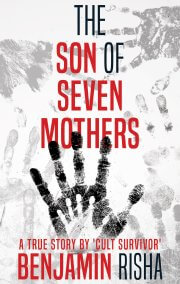

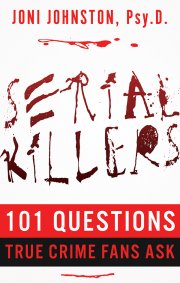
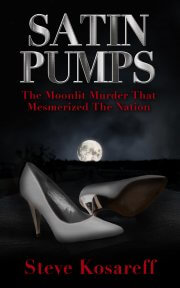
 Join our email list
Join our email list
Leave a Reply